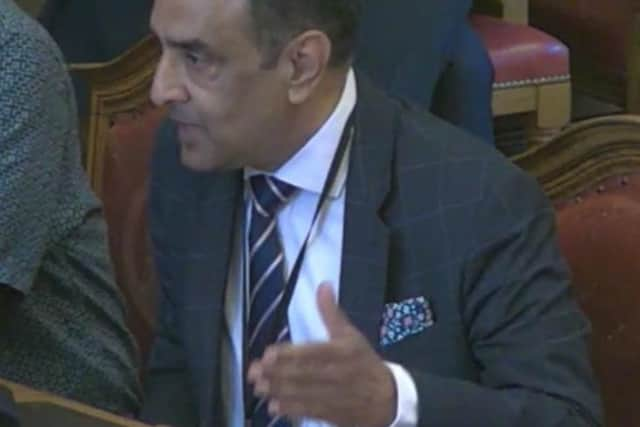Sheffield BME children “significantly over-represented” in school exclusions
and live on Freeview channel 276
The discussion took place at a meeting of Sheffield City Council’s education, children and families policy committee (September 27). The figures were presented in a report about a three-year, £1.5m plan to provide alternative education for children at significant risk of exclusion from school.
The service is currently provided by Sheffield Inclusion Centre, who are ending their involvement in the exclusion prevention service but will continue to provide education for children who have been permanently excluded from school. A new contract needs to be put in place once the current one ends next March.
Advertisement
Hide AdAdvertisement
Hide AdA committee report said: “BME children are significantly over-represented in the cohort of children identified as at risk of exclusion and referred to the existing service for support.


“A breakdown of the ethnicity of children accessing the service over time shows the following:• White British – 62.4%• White gypsy/Roma – 11.4%• White and black Caribbean – 7.9%• White and any other Asian – 3.0%• All other ethnicities were 2.5% or less.”
National Census data from 2021 shows that 74.5% of the city population were white British, 0.5% were of Roma or white gypsy/Traveller ethnicity combined and 0.4% of the population were white or black Caribbean.
The report added: “This issue is addressed in the Sheffield Race Equality Commission report 2022, which identifies that BAME pupils made up 52% of pupils on roll at the Pupil Referral Unit (ie pupils who had been permanentlyexcluded) and within that 52%, children of Roma ethnicity made up 20%.


“These outcomes are largely unchanged: in (the) 2022-23 academic year, 47% of exclusions in Sheffield were of BME children, and within that, 14.5% were of children of Roma ethnicity.”
Advertisement
Hide AdAdvertisement
Hide AdThe report also said that 90.2% of children accessing the existing service are identified as having SEND (Special Educational Needs and Disabilities).
It added: “For 63.4%, the primary need (the child’s foremost need) falls into the category of social, emotional and mental health. Many of the children have experienced trauma, ACES (Adverse Childhood Experiences) or attachment issues.”
Coun Mohammed Mahroof pointed to the figures for white gypsy/Roma and white and black Caribbean children, saying: “These are completely out of kilter with the figures for the population here”. He asked for details of how the issue was being tackled.


Joe Horobin, director of integrated commissioning, said she is looking for a provider with experience of supporting Roma children “who clearly are over-represented in this cohort”.
Tim Armstrong, council head of access and inclusion, said a group of headteachers in the north-east of the city are looking at how children in the Roma community are more likely to miss out on mainstream education, both by being excluded and not going to school.
He said one multi-academy trust headteacher had highlighted the environment that families live in and children eating unhealthily, so they get sick and miss school.
Advertisement
Hide AdAdvertisement
Hide Ad“We can say ‘come to school, comply with the expectations’ but if children aren’t enabled to come to school and being included and feel like they belong in that environment and are able to get there, that’s never going to work, so it’s a much bigger system leadership approach that’s needed to try and support that community, which is massively over-represented in the areas of risk that we have,” said Mr Armstrong.
Coun Mahroof commented: “I do feel very strongly that I can’t sit and not highlight this, especially bearing in mind that we committed to the young people that came here that we will address these issues.” He was referring to a group of young women students from the city Yemeni community who told the committee that they believe the Sheffield education system is systemically racist.
Coun Malekei Haybe stressed that any new provider should target support for BME children with SEND characteristics. Committee chair Coun Dawn Dale said that under-served communities was a better term as it is less restrictive.